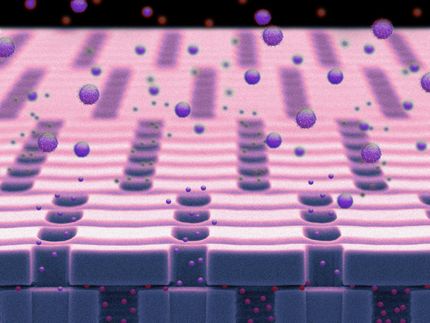Archimedes Pharma Announces Successful Proof-of-Concept Results on Two Intranasal Development Projects
Phase II trials on both projects to be initiated during 2009
Advertisement
Archimedes Pharma Limited announced positive headline data from its recently completed proof-of-concept trials for two of its intranasal (IN) development projects. Both the IN Apomorphine and IN Diazepam phase I studies showed high bioavailability, positive pharmacokinetics and good tolerability and confirmed that each candidate has the potential to replace existing formulations in high value markets. The agents are being developed for the treatment of motor fluctuations or "off episodes" in Parkinson's disease and Acute Repetitive Seizures ("ARS") in refractory epilepsy patients respectively.
Richard de Souza, CEO of Archimedes, said: "Both these trials have generated exciting results, highlighting the quality of our development capabilities and providing further validation of our business model. We look forward to driving our in-house development projects through to commercialization to provide an ongoing stream of novel products to our rapidly growing pan-European commercial organisation in therapeutic areas in which we already have an established presence. The strength of this strategy is exemplified by our lead development project, NasalFent®, an intranasal fentanyl spray that has recently shown a best-in class profile for breakthrough cancer pain in our Phase III programme and the regulatory filings for which will begin in the first half of 2009."
Archimedes' IN Apomorphine and IN Diazepam have been developed by applying the drug delivery expertise of its subsidiary Archimedes Development limited which also developed PecSysT, the proprietary technology which underpins NasalFent.
Archimedes will now begin preparations to take both IN Apomorphine and IN Diazepam into further clinical trials and management anticipates the initiation of Phase II studies later in 2009. If development proceeds to plan, both IN Apomorphine and IN Diazepam could be approved in 2012.
Most read news
Other news from the department research and development

Get the life science industry in your inbox
By submitting this form you agree that LUMITOS AG will send you the newsletter(s) selected above by email. Your data will not be passed on to third parties. Your data will be stored and processed in accordance with our data protection regulations. LUMITOS may contact you by email for the purpose of advertising or market and opinion surveys. You can revoke your consent at any time without giving reasons to LUMITOS AG, Ernst-Augustin-Str. 2, 12489 Berlin, Germany or by e-mail at revoke@lumitos.com with effect for the future. In addition, each email contains a link to unsubscribe from the corresponding newsletter.






















































